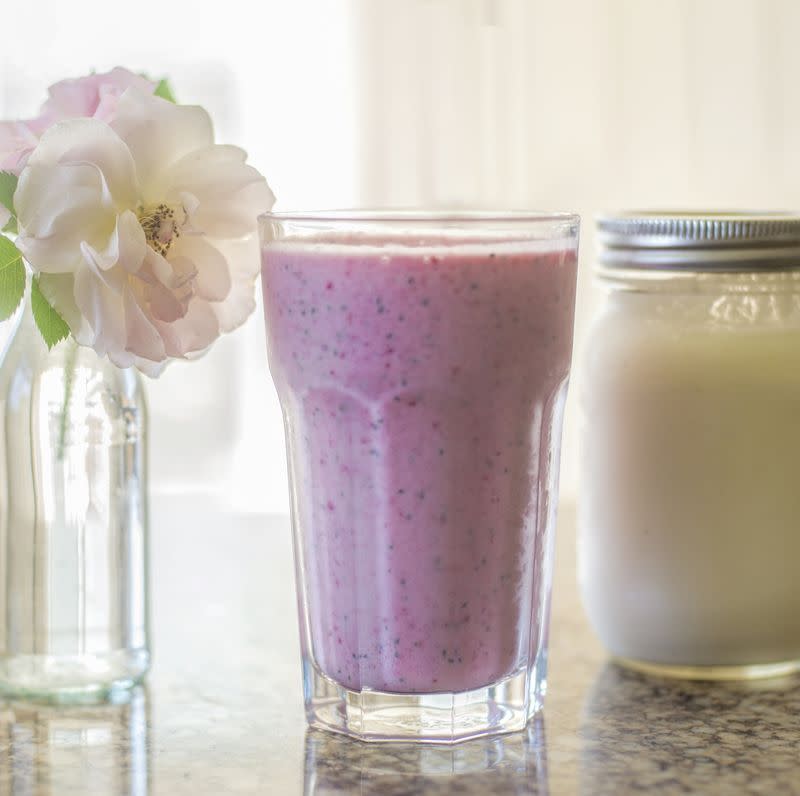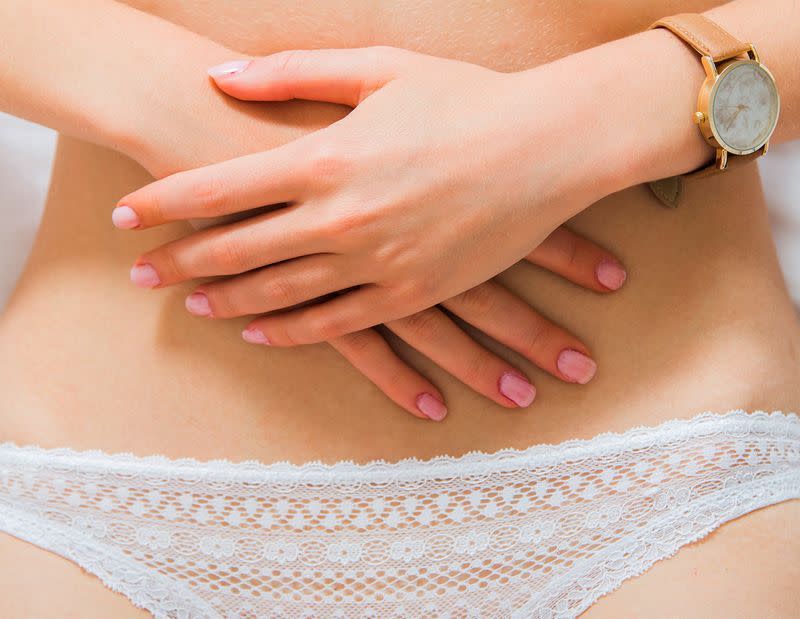10 Reasons Probiotics Should Be a Regular Part of Your Daily Routine

10 Reasons Probiotics Should Be a Regular Part of Your Daily Routine
Probiotics. Everyone is saying you need them, and guess what? They're right. But before you can figure out what probiotic for women works best for your body, you have to know what exactly probiotics are and the role they play in your health.
Simply put, probiotics are live microorganisms that live in your gut, reports the National Center for Complementary and Integrative Health (NCCIH). And althoughe a lot of people think that microorganisms — especially the bacteria variety — are harmful to your health, probiotics are actually there to provide health benefits.
But sometimes you need a little help from outside sources in order to secure those benefits, which is why a lot of experts recommend getting an extra hit of probiotics through food. Fermented options — think kefir, sauerkraut, and kimchi — are a great place to start, according to the International Scientific Association of Probiotics and Prebiotics, as are these other surprising foods with probiotics.
If that's not enough, your doctor may also suggest a probiotic supplement. But don't go and grab just anything off the pharmacy shelf. Probiotic supplements are not all the same, and they often contain different strains to serve different needs, says naturopathic physician Amy Fasig.
There's still a lot to be discovered about probiotics, says Dr. Holly Thacker of Cleveland Clinic. One thing that's for sure, however, is that your gastrointestinal (GI) health can play an important role in your bodily functions. "A lot of different medical conditions, from cardiovascular to autoimmune to cancers to even potentially mood, that can be affected by the food you eat," Dr. Thacker tells Woman's Day. "Obviously, there’s a complex interaction between the food and the bacteria in your intestines, and then interactions with other substances and gut hormones that your body makes."
Clearly, probiotics can help maintain good health in a variety of ways, but it's important to note that they're not like your typical supplement. "If you don’t have any GI issues, there’s no benefit to taking it," NYU Langone's Dr. Lisa Ganjhu tells Woman's Day. "It’s not like a vitamin."

1) They keep your other organs healthy.
The human body is connected in ways you my not even realize. The gut, which is what probiotics help with the most, interacts with the brain and lots of other organ systems, Dr. Thacker explains. "Eating healthy food so you have a healthy gut microbiome is key to lots of different illnesses, not just GI," she says.

2) They help with gut health.
As you probably know, probiotics are mostly used to maintain your gastrointestinal tract healthy and functioning properly. So, if you have a GI illness, taking a probiotic could be extremely helpful for you. "But that being said, if people have normal gut function — they’re happy with it, they’re not bloated, they don’t have any issue — I do not tell them to take probiotic prophylactically," Dr. Ganjhu says."If everything is working well, they don’t need to take it every day."

3) They prevent urinary tract infections.
If you're one of the 40-60% of women who experience urinary tract infections, or UTIs, with some regularity, you may benefit from popping probiotics. Fasig says they can help reduce the frequency in which you experience them. When they do occur, those microorganisms may help subdue the not-so-fun symptoms that often accompany UTIs.

4) They bolster immunity.
If you get sick often, probiotics might be the immune booster you've been looking for. The Cleveland Clinic says they've been shown to strengthen immunity by enriching and replenishing the good bacteria in the body. And when you eat foods with probiotics regularly, it's easier for your body to produce vitamins and enzymes that help keep your intestines happy.

5) They restore good bacteria.
You know antibiotics can help fight off bacterial infections, but overusing them can actually deplete the good bacteria in your body, reports Harvard Medical School. (That's why doctors recommend you don't take antibiotics unless you really need them.) If you must go on meds, talk with your doctor about taking probiotics afterward, as the NCCIH says they can help recover beneficial microorganisms afterward and help keep the ratio of good to bad bacteria in balance.

6) They prevent traveler's diarrhea.
Next time you pack your travel beauty bag, slip a shelf-stable probiotic in there to preempt bathroom emergencies, Fasig says. Look for one that contains Lactobacillus acidophilus, Lactobacillus sporogenes, Bifidophilus bifidum, and Sacchromyces boulardii strains ($35, Amazon), which Fasig says can improve your intestinal health to fix issues with constipation or diarrhea.

7) They improve fertility.
Trying to conceive can be tough, but Fasig says probiotics may make it easier, as research shows that having a good ratio of certain probiotic strains can improve your odds. If you're trying to expand your family, talk to your OBGYN about what probiotics may work best for you.

8) They treat vaginal infections.
Probiotics can ward off vaginal yeast infections, urogenital infections, and bacterial vaginosis by keeping the vaginal microbiome in balance, Fasig says. Studies have also shown that taking Lactobacillus rhamnosus and Lactobacillus fermentum strains ($24, Amazon) daily can positively improve vaginal flora.

9) They clear up skin problems.
The benefits of probiotics don't stop at internal health. Research from the American Academy of Dermatology found that, whether applied topically or taken orally, probiotics can potentially help patients with skin issues such as acne, rosacea, and eczema. More studies need to be done though, so talk to your dermatologist before changing your regular routine.

10) They boost digestion.
Those microbes in your lower intestinal tract are responsible for helping you digest food, and Fasig says taking probiotics can help keep everything running smoothly. Probiotics may also help reduce gastrointestinal symptoms, including gas, bloating, and constipation, according to Harvard Medical School.
__________________________________________________________
Subscribe to Woman's Day today and get 73% off your first 12 issues. And while you’re at it, sign up for our FREE newsletter for even more of the Woman's Day content you want.
Bring on the kefir and sauerkraut — they're good for your gut.